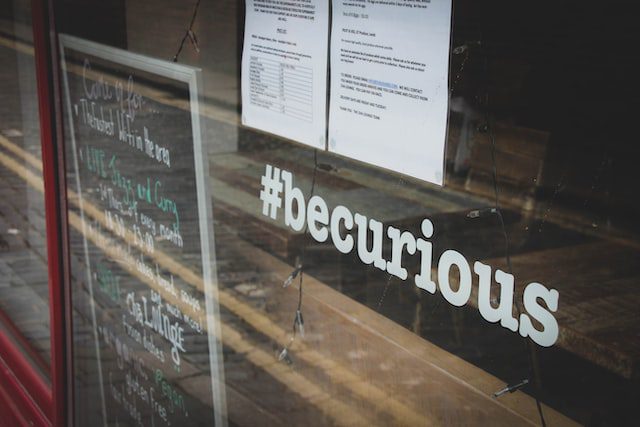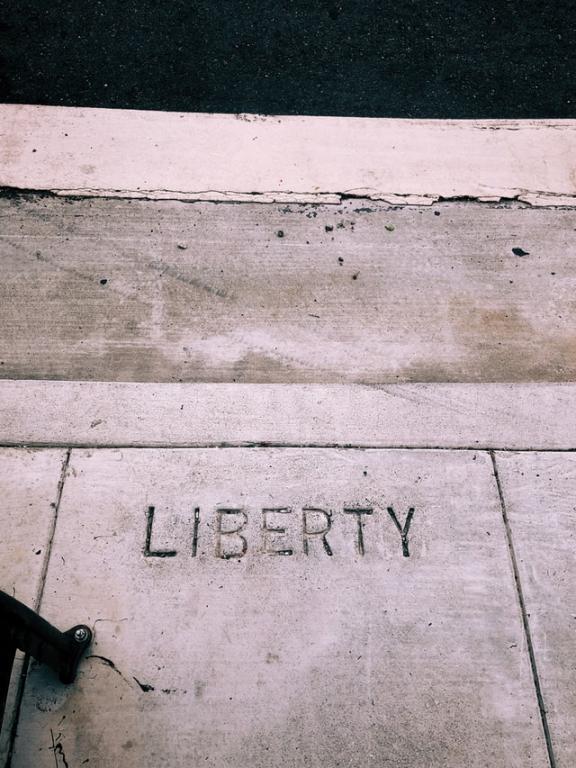
The center of the storm. Is it the center of suffering?
The storm I have been facing—it’s been relatively calm. But only because I have refused to continue moving outward from the center of this storm that is my life. Of course, I am being dramatic.
Unlike the inner-workings of an actual center of a storm, take for instance a tornado; I have a little bit more control over how long I hover in this center. I can resist the gravitational pull that is attempting to advance me toward the remaining storm. It’s nothing to boast about, mind you, because it only prolongs the remainder of the storm. It keeps the winds blowing on the outside, creating more debris. But for now, I am somewhat protected by this temporary calm.
I see the emotional debris and damage pile up. You see, remaining in the center of the storm provides for me a great deal of distance from the reality that I am not ready for. The change that I am not ready for. I chose this path, but for now, I find contentment in the deviation from the path, sitting in the center of the storm.
In the exploration of the Gospels, Alexander Shaia illuminates Mark’s powerful and vivid imagery in the masterfully written book, Heart and Mind: The Four-Gospel Journey for Radical Transformation. Shaia points to the way “Mark wants the Messiahnians to understand the nature of fundamental change—and to understand that serious conflict is one of the necessary and predictable steps of all transformation.”
This makes sense. Change comes from conflict. A conflict; with either internal or external impositions; compels us to look at things from a different lens. We cannot transform unless we are willing to confront the conflict, and from such confrontations, change emerges.
As Shaia points out, the 13th chapter of the Gospel of Mark relays this message:
“This is how change works,” Mark teaches. “This is how strong foundations are built. You must clear out the old. There are always extreme struggles as the old beliefs fight back then crumble to make room for new ones arising.”
For instance, one can be happily walking along their path toward transformation and then all of the lights go out and the path is darkened. What’s on the other side of that darkness? Seeing the darkness can make you start to second-guess the last turn you made.
What if those old ways that you were so willing to run away from aren’t what you should have been running from? It seems like everyone is turning against you. It feels like every choice you make is the wrong one. It feels like the world is working against you. It feels like the cosmos are at war with you.
Change will feel like war. Change will feel like it is literally the end of the world.
When you hear of wars and rumors of wars, do not be alarmed; this must take place, but the end is still to come. For the nation will rise against nation, and kingdom against kingdom; there will be earthquakes in various places; there will be famines. This is by the beginning of the birth pangs… (Mark 13:7-13)
This is not to say that we should prepare for apocalyptic times, however. The referenced scripture foretells of events that have already come to pass; the fall of Jerusalem’s Temple in 70 A.D. So too, we must not so easily dismiss the prophecy of conflict and struggle for the road to transformation. As Shaia readily points out:
“But we do not need to prepare for external “end times” … We understand that if we transform our inner selves, we will not cause or be party to the external events that lead to a catastrophe. In this journey of inner transformation, we can understand that the images in Mark’s gospel are invaluable metaphors for the powerful feelings that we undergo in the second path, when death and destruction and collapse dressed in depression and despair surround us.”
My co-authoring relationship fell apart. Four of my cows died. I lost all of my sheep to a disease. My 2 beloved Great Pyrenees ran away. My two favorite cats died. My daughter delivered her son 14 weeks early. I lost a publisher deal and my podcast. In a span of 4 months. My entire life was flipped upside down. Death, destruction, depression, and despair succinctly articulate precisely what my season has produced for me. Everything that I had envisioned for myself; pieces to the puzzle that I believed would depict the illustration of my “road to success”—gone.
Thankfully, this isn’t the end…
Heart and Mind’s message of today echoes Mark’s message from long ago:
“This is not the end, even though it feels as though it might be. Inner and outer conflict are to be expected. So are the uncertainties that always arise with conflict. Try to remember: when deep change occurs, this is what the beginning of something new looks and feels like. Hold on. Be still. Wait! Later, you will be able to remember this moment, and see how unexpectedly the new cornerstone was chosen, and with what deep purpose it was laid.”
It is not so much that we shouldn’t be prepared, in some fashion, for the turbulent trend of storms that we will encounter. It’s more so that we shouldn’t weight ourselves down even further with additional worry and fear about the state of tomorrow’s path. It is about focusing on the now—the present. We must stay awake.
In the center of my storm—in the center of my suffering— I can at least see what has come to pass. I have already started cleaning up some of that debris, and putting what broken pieces I can find, back together. It is during my intermission of clean up that I can look back to the moment when the clouds started to darken and the rain began to beat down. Is it here, or is it after I pass through the remainder of the storm that I will see the purpose?
Perhaps it is not the center of the suffering we are to focus on so much as it is remaining centered despite our suffering? Is that why Jesus commands the disciples to stay awake as often as he does? Is staying awake the key?
Staying present is the sharpened focus of Mark’s Passion account, according to Shaia. It is through this focus that we are brought to the main spiritual question of this gospel:
“How do we have trust in the path we have chosen despite our pain and fear?”
We can claim our path. We can deny our path. We can desert our path, or, we can betray our path. It is claiming our path that provides for us the strength to faithfully remain secure despite our pain and fear. We do this by staying awake.
If the path we chose suddenly seems filled with conflict, we do what humans do, before the cock crows twice, we deny, deny, deny. But, does denying the reality of the suffering on the path to transformation do us any good? Does it harm us further? Can we be redeemed of such denials?
To help answer these questions, Shaia delivers for his readers, an understanding of the selective wordplay that can be found in the original Greek of Mark’s precise choice of diction.
“In Mark’s gospel, Jesus uses the word ‘betray’ to refer to those who totally give up their belief, or who, like Judas, turn someone else over to the authorities. He uses the word “desertion”—which literally means to turn one’s face in another direction—to describe those who give in to the impulse to avoid conflict—something that, as Jesus predicts, every single one of the followers will do without exception.”
He further explains:
“When he focuses on Jesus’ prediction that given the circumstances inevitably “all” would desert, he is telling the Messiahnians he understands their emotional and physical need to flee. Jesus knows that the combination of young faith and terrible challenges can lead to a lapse in faith, in vigilance. He also knows that desertion, unlike betrayal, will not critically damage the soul—deserters can redeem themselves, turn around again, and return to the path… Mark also chooses the word “denial” in this passage to connote the lowest level of abandonment. He uses “denial” when someone claims “not to know”—even when one actually does—illustrated by Peter’s denial of knowing Jesus. This choice of words tells the Christus community that even the most faithful of disciples can have momentary lapses and abandon their faith. But they can also understand their error, repent, and be restored.”
Judas was the prime illustration of how betrayal can damage the soul. It overwhelmed him so much that he took his own life. When we betray our own path, the damage can be devastating. That is not to say that betrayal cannot lead to redemption.
I know all too well what betrayal can do to the soul. It was a lesson I learned the hardest way possible. I wrote about it here. Fortunately for me, I had a holy redeemer of my own—my husband— who helped guide me back to my path.
And so, we choose denial and/or desertion. Two components along our path practice that will eventually become an impetus to our destination more than once. Two choices that can lead us back to our path so long as we are willing to bring the guilt and remorse into full view. That happens by staying present. A practice itself that we don’t always intentionally advance consistently. We waver.
We are human. We avoid conflict because we are biologically pre-wired to do so. More than that, we can avoid the shame of our conflict, or so we think, so long as we just deny the reality.
Which makes me ask myself: Am I staying in the center of the storm because I don’t want to face the conflict or because I have not figured out how to center myself amidst the conflict? Or is it more than that which makes this all the more difficult to push past?
Perhaps it is because when we encounter great suffering, we do another human thing; we hold on to bitterness and resentment, which intensifies the suffering. Which also pulls out back out of the present moment. Bitterness and resentment are a form of clinging, and clinging only adds to the conflict.
Shaia laments:
“Mark gives no indication that Jesus surrendered to bitterness or resentment. On the contrary, he calmly predicts his fate to the disciples, and though he is distressed in Gethsemane, his prayer is clear: he accepts the necessity of his suffering and death if that is God’s will for him. The shame and mockery heaped on him by the soldiers and those around the cross do not affect him. He refuses the palliative wine he is offered. While there is no bitterness or resentment in this account, there is intense suffering and great sadness. Jesus’ final moment was a crying out, a proclamation of being present to the pain as Jesus marshaled all his energy, all the strength of his belief, in a last, great triumphant outbreath.”
Jesus suffers, but his suffering was not in vain. He did not try to defend himself. He didn’t lash out with angry emails. He didn’t make passive-aggressive posts on social media. He didn’t tell everyone who was willing to listen: “Do you know what they did to me?” He held no resentment. There was no bitterness in his sacrifice. He embraced suffering- he surrendered to it.
And this leaves me with a remarkable epiphany of my own. I have not embraced my own suffering and such is why I find comfort in the center of the storm. Is it that I find comfort clinging to my bitterness and resentment? Is it that I find comfort in not being awake to the present suffering?
Is this why we deny our paths? Why we desert our paths? Because we cannot fully embrace all that goes along with it? Is that the ultimate task at hand? (Or, one of many tasks at hand, rather?)
The path is laid out before me. I have denied it. I have even deserted it. My choices are now between claiming it as my own or betraying it altogether. We have four choices. Which choice will you make?












